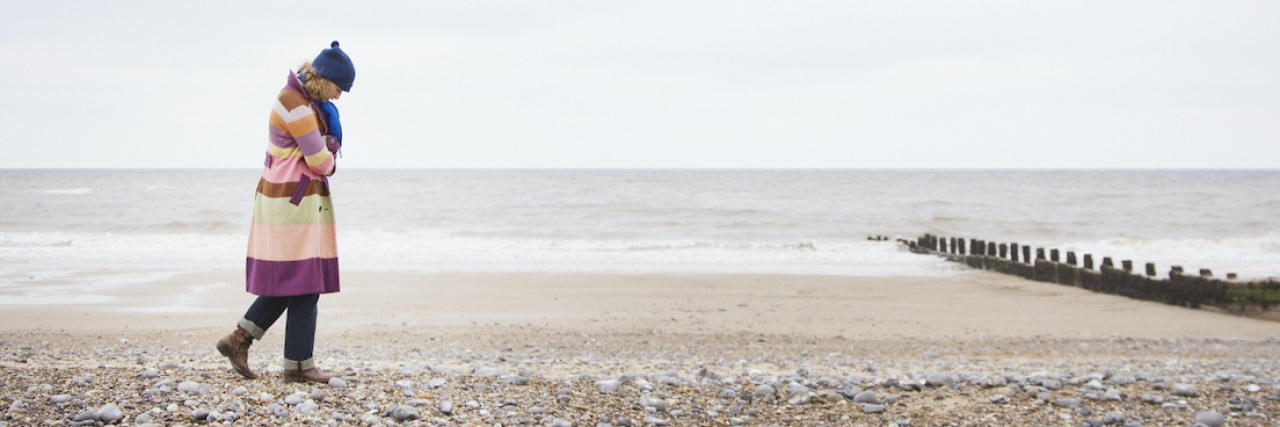I knew I was depressed — it was both a concept and an illness I could define. What I could not understand was one of the features of my depression, which was the unrelenting conviction that I was not safe.
It didn’t make any sense. It was hard to reconcile this feeling with the facts: I grew up in a loving and supportive household, had a few close friends, a meaningful career and a good psychiatrist. My fear was mostly psychological, but at times it became so intense it seemed as if I were in physical danger, as well.
I did everything I could to feel safe, but little helped, and this state of mind intertwined both as a cause and an effect of my depression. At some point, I spoke about this problem to my boss at work. She demonstrated a keen understanding and a willingness to help. As a consequence, I came to realize that she had the power to make me feel safe.
In some ways, it was a relief, knowing safety was possible. But it also turned into a greater problem. Now that I had experienced safety, it became an obsession, and I could think of nothing else. I lived in fear of my boss’ unavailability, and acted inappropriately if I couldn’t get her attention all the time. As supportive as she was, it was not within her power to fix a problem that existed solely within my mind.
As with many addicts, the drug of choice is never enough. Fearing that safety existed, but only fleetingly and outside of my grasp, I devolved to the point of no longer wanting to live.
After an episode of serious self-harm, I started seeing a therapist every other day for over a year. During this time we worked intensely on discovering the origins of my obsession with safety, and strategies for the present to increase my ability to keep myself feeling safe. She listened endlessly without judgment, took me very seriously and heard what I was saying. Both the depression and the feeling of being unsafe decreased exponentially.
Following that year, I wrote a memoir titled, “Safe,” detailing my journey from one side of safety to the other. Subsequently, I have been giving a lot of thought to a more concise definition of the word. Being able to define what exactly safety means to me gives me the mental clarity and the practical guidelines to achieve that sense of safety. Here is the list I have come up with for myself.
- Having a sense of agency: I have some degree of control over my responses to my emotions. I can understand and befriend them. I have the ability to extricate myself from pain.
- Having meaningful connections: I have people in my life who listen to, hear and validate my state of mind. I am understood. I have a safety net, should my own resources not be enough, and the belief that help is possible.
- Having an environment that is right for me: I prefer to put myself in situations that are predictable and consistent. I need a busy, challenging schedule. I like to be surrounded by animals all the time.
The definition of safety is going to vary from individual to individual. I have come up with a second list — a list of what else safety could mean. I believe it helps to step outside of myself, both to broaden my horizons and to increase my empathy towards and understanding of those around me. Perhaps the next step in my quest for safety is to help others find theirs. The list is far from comprehensive, but here are a few other ideas:
- An activity: do you find safety in a physical pursuit, such as a sport? Or perhaps it’s in an artistic expression like painting or writing. It could be a solitary activity, such as reading or gardening, or something performed as a a group or a team. It could be your profession.
- A physical space: do you find safety in a particular place — your home, a certain spot in nature or your favorite coffee shop?
- A specific person: is there one person you always feel safe around? Or are you that person to someone else? Perhaps it’s an animal, not a person.
- A set of feelings: does the feeling of being grounded make you feel safe? Or is it more a sense of connection, a feeling of autonomy or the happiness derived from validation — either internal or external? Do you appreciate the satisfaction of knowing you are depended upon?
Identifying what safety means helps me take active and practical steps towards it. Whatever thoughts, actions, fears or concepts you are fixated on are usually trying to tell you something. Listen, explore and take action. It won’t necessarily cure mental illness, but it might provide a little island of peace amidst a turbulent sea. Somedays, that’s enough.
Getty image via OJO Images

